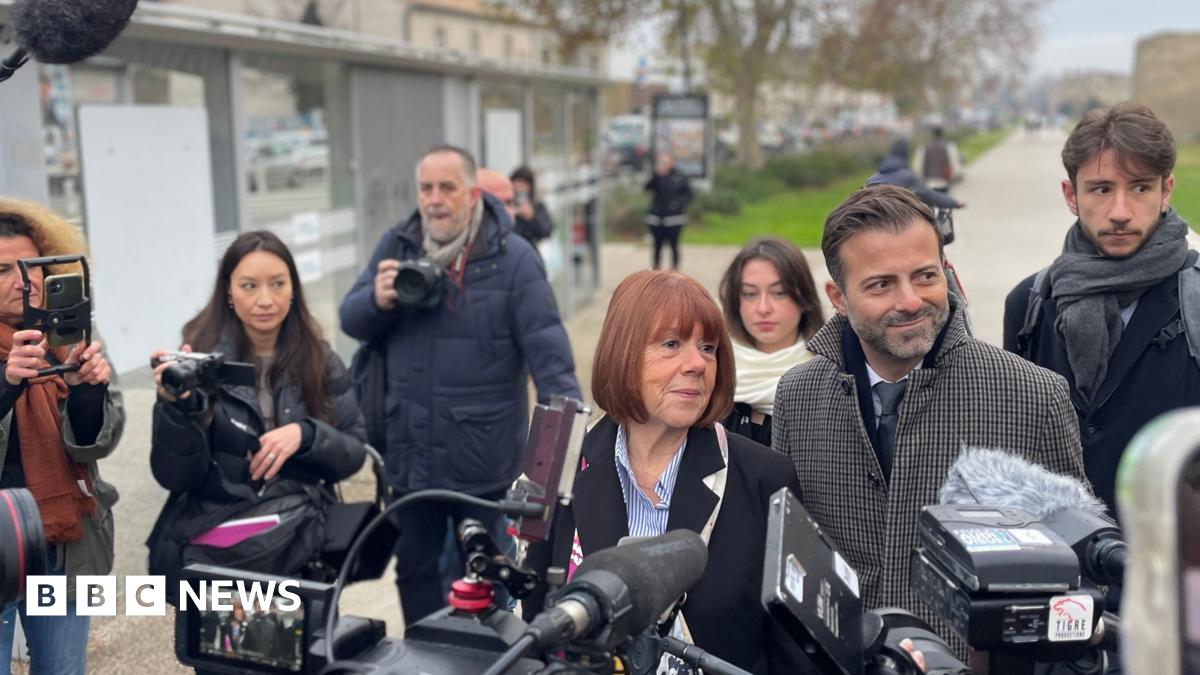A few days earlier, the mayor of Mazan had issued a gentler version of the same argument, in a public statement that described Gisèle Pelicot’s years-long ordeal as “a private matter… that has nothing to do with us”.
One can well understand Mayor Louis Bonnet’s desire to protect his town’s reputation and its tourism industry. But it seems worth noting that a year earlier, he’d made headlines across France after he’d told me, twice, in an interview, that he wanted to “play down” the seriousness of Gisèle Pelicot’s ordeals because “no-one was killed”, and no children were involved.
It is also worth noting that almost all the women we did speak to in Mazan last week did not share the mayor’s desire to see the Pelicot case as, primarily, something to “move beyond”.
Smoking a cigarette in a shaded doorway not far from the church, a 33-year-old civil servant, who gave her name as Aurélie, spoke with undisguised bitterness.
“No-one talks about it anymore, even here in Mazan. It’s as if it never happened. I know someone experiencing domestic violence right now. But women hide it. They’re afraid of the men who do these things,” she said, adding that she was “certain” that more of Gisèle Pelicot’s rapists remained undetected, and at large, in the neighbourhood.
Walking nearby past a couple of sunbathing cats, Aurore Baralier, 68, was equally keen to talk, but took a different view of the Pelicot case.
“The world is evolving. France is evolving.” With Madame Pelicot’s help? “Yes. It’s been a boost, for women to speak freely,” she told me, emphatically.
Across France, there is no doubt that the publicity generated by Gisèle Pelicot’s globally broadcast determination that “shame should change sides” – from victim to rapist – has provided added momentum to a campaign against sexual violence already energised by the MeToo movement.
“I would say changing behaviour is something that takes generations. [But] the Pelicot case sparked a huge, historic mobilisation… against sexual violence, and against impunity,” said Alyssa Ahrabare, who co-ordinates a network of 50 feminist organisations in France. “We’re focused on training professionals, supporting victims, on investigations.”
“Yes, France has changed. The [number of] complaints of rapes has tripled, showing that victims – women and girls – they speak up and they want justice,” agreed Céline Piques, spokesperson for the NGO “Dare to be feminist”.
And yet, the energy and optimism that engulfed Gisèle Pelicot last December, as she emerged from the Avignon courthouse and into a scrum of supporters, have not led to many substantive changes to the way the French state tackles the issue of sexual violence.
